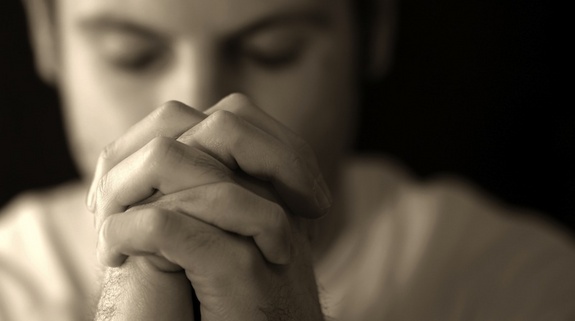Americans' Confidence in the Church at All-Time Low

Get the world’s most fascinating discoveries delivered straight to your inbox.
You are now subscribed
Your newsletter sign-up was successful
Want to add more newsletters?

Delivered Daily
Daily Newsletter
Sign up for the latest discoveries, groundbreaking research and fascinating breakthroughs that impact you and the wider world direct to your inbox.

Once a week
Life's Little Mysteries
Feed your curiosity with an exclusive mystery every week, solved with science and delivered direct to your inbox before it's seen anywhere else.

Once a week
How It Works
Sign up to our free science & technology newsletter for your weekly fix of fascinating articles, quick quizzes, amazing images, and more

Delivered daily
Space.com Newsletter
Breaking space news, the latest updates on rocket launches, skywatching events and more!

Once a month
Watch This Space
Sign up to our monthly entertainment newsletter to keep up with all our coverage of the latest sci-fi and space movies, tv shows, games and books.

Once a week
Night Sky This Week
Discover this week's must-see night sky events, moon phases, and stunning astrophotos. Sign up for our skywatching newsletter and explore the universe with us!
Join the club
Get full access to premium articles, exclusive features and a growing list of member rewards.
Americans' confidence in organized religion is at its lowest in more than three decades, with just 44 percent having a lot of faith in the church, a new Gallup poll released this week suggests.
The results follow a long-term decline in Americans' confidence in religion since the 1970s, when Americans ranked "the church or organized religion" higher than any other institution in the survey, beating out the military and the U.S. Supreme Court. In the 1980s confidence in organized religion fell below 60 percent for the first time. Gallup officials say the dip may have resulted from scandals involving televangelist preachers Jim Bakker and Jimmy Swaggart.
Then, in 2001 confidence increased to 60 percent, only to be hammered back down, possibly as a result of charges of child molestation by Catholic priests, Gallup suggests.
When separated out by religious affiliation, the new Gallup poll showed that 56 percent of Protestants have a great deal or quite a lot of confidence in the church or organized religion, compared with 46 percent of Catholics. There weren't enough respondents from other religions to separate them out in Gallup's analysis.
Catholics' confidence dipped to a record low in 2002 and again in 2007. The 2002 result most likely reflected a high-profile child sex abuse case against a Massachusetts priest at the time, as well as charges of a cover-up by Boston Cardinal Bernard Law, who ultimately resigned over the matter. The drop in 2007 may have been part of a broader trend that saw confidence in most U.S. institutions drop that year.
Two major findings apparent in Gallup's confidence in the church and organized religion trend are, first, the long-term decline in Americans' confidence in this societal institution since 1973, and second, the suppressed confidence among Catholics relative to Protestants starting in 1981, and becoming more pronounced by 2002.
"While various sex abuse scandals involving U.S. clerics have likely played a role in Americans' growing skepticism about the church and organized religion, the decline in confidence does not necessarily indicate a decline in Americans' personal attachment to religion," according to a Gallup statement. The number of Americans who say religion is very important in their lives has remained pretty constant since the mid-1970s.
Get the world’s most fascinating discoveries delivered straight to your inbox.
A study reported in 2010 in the journal Sociology of Religion found that most Americans believe God is involved in their everyday lives and concerned with their personal wellbeing. For teens, religion may take on a more modern feel, with one study reported this year finding "Twilight" and other supernatural tales may stand in for religion for non-religious teens.
Organized religion can be a positive in people's lives, with a recent study finding regular church attendance may boost your mood and chase away the Sunday blues. In fact, religion is known to increase life satisfaction and even protect against depression and improve social support.
In the new survey, Gallup pollsters conducted telephone interviews from June 7-10, 2012, with a random sample of 1,004 Americans ages 18 and older in the 50 U.S. states and the District of Columbia. They weighted the results using demographic information collected in March 2011 so that the results would represent the nation as a whole.
Follow LiveScience on Twitter @livescience. We're also on Facebook & Google+.
Jeanna Bryner is managing editor of Scientific American. Previously she was editor in chief of Live Science and, prior to that, an editor at Scholastic's Science World magazine. Bryner has an English degree from Salisbury University, a master's degree in biogeochemistry and environmental sciences from the University of Maryland and a graduate science journalism degree from New York University. She has worked as a biologist in Florida, where she monitored wetlands and did field surveys for endangered species, including the gorgeous Florida Scrub Jay. She also received an ocean sciences journalism fellowship from the Woods Hole Oceanographic Institution. She is a firm believer that science is for everyone and that just about everything can be viewed through the lens of science.
 Live Science Plus
Live Science Plus










